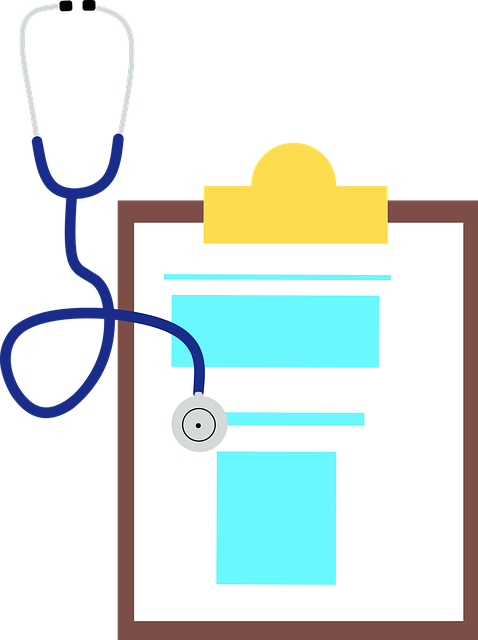Translation services for UK Public Health Reports face unique challenges due to stringent regulatory requirements, complex medical terminology, and cultural nuances. Professional translators with public health expertise are crucial to ensure accurate and compliant translations, maintaining technical accuracy and cultural relevance. Reputable service providers should have healthcare sector experience, ISO certification, robust quality assurance processes, and secure document handling. Engaging such services is vital for effective communication, legal compliance, public safety, and mitigating risks associated with inaccurate translations.
Ensuring compliance with UK regulations for public health reports is paramount, especially with an increasing global exchange of information. This article delves into the intricacies of translating these critical documents, highlighting the importance of accurate and reliable translation services. We explore key considerations such as understanding UK regulatory requirements, navigating technical challenges, selecting expert providers, implementing quality assurance, mitigating legal risks, and fostering transparency. Discover best practices for maintaining accuracy in translation services for UK public health reports.
- Understanding UK Regulatory Requirements for Public Health Reports
- The Role of Accurate Translation in Ensuring Compliance
- Challenges in Translating Technical Documentation
- Selecting the Right Language Services Provider
- Quality Assurance and Control Measures for Translated Documents
- Legal Implications and Risk Mitigation Strategies
- Best Practices for Maintaining Transparency and Accuracy
Understanding UK Regulatory Requirements for Public Health Reports

The UK has stringent regulatory requirements for public health reports, especially when it comes to translations. Compliance is essential to ensure the accuracy and reliability of information shared within the healthcare sector. These regulations are designed to maintain high standards and protect public safety. When translating public health reports for use in the UK, language service providers must be aware of these requirements to guarantee adherence.
Key considerations include following specific guidelines for translation quality, such as those set by the International Organization for Standardization (ISO), and ensuring that translations are conducted by qualified and experienced translators who possess expertise in both the source and target languages. Additionally, public health reports must be translated into English or one of the official UK languages, maintaining technical accuracy and cultural relevance throughout the translation process.
The Role of Accurate Translation in Ensuring Compliance

Accurate translation plays a pivotal role in ensuring UK compliance with public health reports, especially when documents are shared across languages and cultures. In a country as diverse as the UK, where multiple languages are spoken, clear communication is essential for effective public health strategies. Translation services must be at the forefront of this process to bridge any language barriers.
When translating UK public health reports, precision is paramount. Professional translators with expertise in medical terminology and cultural nuances ensure that vital information is conveyed accurately. This involves not just word-for-word translation but also understanding the context and local regulations to maintain compliance. For instance, specific terms related to diseases, treatments, or preventive measures might have different connotations across languages, requiring skilled translators to navigate these complexities.
Challenges in Translating Technical Documentation

Translating public health reports, especially those containing technical information, presents unique challenges that require careful consideration to ensure UK compliance. The complexity of medical terminology and the need for precise scientific language can make accurate translation a daunting task. Professional translation services play a vital role in navigating these complexities.
Specialized translators with expertise in public health are essential to grasp subtle nuances and convey technical concepts effectively. Moreover, staying abreast of UK healthcare regulations and guidelines is crucial to produce reports that align with local standards. Translation services for UK Public Health Reports must employ rigorous quality assurance processes to guarantee accuracy, consistency, and cultural adaptability, ensuring the translated documents remain compliant and reliable.
Selecting the Right Language Services Provider

When it comes to translating public health reports for the UK market, choosing the right language services provider is paramount. Look for a company with extensive experience in the healthcare sector and a deep understanding of regulatory requirements. Their translators should be medical professionals or have expertise in public health to ensure accurate and contextually appropriate translations.
Reputation and quality assurance are also key factors. Opt for providers that offer transparent processes, strict quality control measures, and ISO certification to guarantee the highest standards. Additionally, consider their capacity to handle large volumes while maintaining consistency and privacy, especially when dealing with sensitive information.
Quality Assurance and Control Measures for Translated Documents

When it comes to translated public health reports, ensuring quality and accuracy is paramount for maintaining UK compliance. Reputable translation services should implement rigorous Quality Assurance (QA) processes to guarantee the reliability of translations. This includes thorough editing and proofreading by native speakers with medical expertise, ensuring terminological consistency across all documents. Advanced QA tools that check grammar, syntax, and style are also essential to maintain a professional standard.
Control measures play an equally vital role in the translation process. Standardized procedures for document handling, such as secure access to sensitive data and encrypted file transfer, safeguard confidential public health information. Regular training sessions for translators on industry-specific terminology and cultural nuances ensure that translated reports are not only accurate but also culturally appropriate. These measures collectively contribute to high-quality translations that meet the stringent requirements of the UK’s public health sector.
Legal Implications and Risk Mitigation Strategies

The accuracy and reliability of translated public health reports are paramount in the UK to ensure legal compliance and effective communication. When translating such sensitive documents, it’s crucial to engage professional translation services that understand the nuances of medical terminology and cultural context. Legal implications can arise from mistranslations, leading to potential risks for public health and safety, as well as reputational damage for relevant authorities.
Risk mitigation strategies include rigorous quality assurance processes, using only qualified translators with expertise in public health, and employing advanced translation memory technologies to maintain consistency. Compliance with UK regulations requires translated reports to be word-for-word accurate and culturally appropriate, ensuring that vital information is conveyed effectively to the target audience.
Best Practices for Maintaining Transparency and Accuracy

Maintaining transparency and accuracy in translated public health reports is paramount to ensuring effective communication and public trust. Firstly, engage reputable translation services that possess a deep understanding of both language nuances and healthcare terminology. These services should employ professional translators who are native speakers, guaranteeing not just accurate translations but also culturally appropriate messaging. Regular quality assurance checks by subject matter experts are essential to catch any potential errors or misinterpretations early in the process.
Additionally, establishing clear guidelines and workflows for translation ensures consistency across all reports. This includes adopting standardized terminology, formatting, and referencing styles to make the documents easily accessible and comparable. Technology plays a crucial role here; utilizing specialized software designed for medical translation can automate certain tasks, enhance efficiency, and reduce human error. Regular updates and feedback mechanisms should be in place to continuously improve the translation process, aligning with evolving public health standards and communication best practices.
Ensuring compliance with UK regulatory requirements for public health reports through accurate translation is paramount. By understanding the nuances of technical documentation and selecting a reputable language services provider, you can mitigate risks and maintain transparency. Implementing robust quality assurance measures and adhering to best practices guarantees that translated documents accurately convey critical information, thereby facilitating effective communication within the UK’s public health landscape. Translation services for UK Public Health Reports should be at the forefront of your strategy to ensure compliance and enhance overall efficiency.
